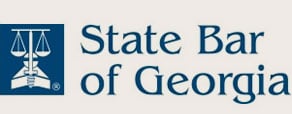Wage garnishment can leave you with little to no money for basic necessities, causing even more debt. Seeking legal advice can not only help to stop wage garnishment, but it can also help you find financial peace.
If your wages are being garnished or could be in the near future, you might be feeling panic, anger, or a great desire to put your head in the sand and forget about it.
Garnishment is the legal right of your creditors to take a certain percentage out of your paycheck to pay past due bills. If you’re already having trouble paying your bills, the vanishing of 10%, 15%, 25%, or even more of your hard-earned money makes it even more difficult to stay afloat and avoid falling further into debt.
Garnishment is on the rise because, after the drops in employment caused by COVID-19, the economy is picking up again. To creditors, the fact that you may have found a new job or your hours at work may have increased again means that you have money to garnish.
Garnishing wages can be especially likely if you owe student loans, child support, or back taxes. Why? Because all these types of debts are automatically eligible for garnishment. For other types of debt, like credit card debt or medical debt, the creditor must get a court order to garnish your paycheck.
How You Can Stop Wage Garnishment
If wage garnishment is taking too much of your paycheck, or causing you to incur new debt in order to meet all your payments (like utilities and food), you may be wondering how to stop it.
One way to stop garnishment is to file for bankruptcy. Yes, we know that bankruptcy is a scary word, but it’s far less scary as a reality. In fact, it can be the one thing that ends your fear of creditors and your struggle to pay debts. Bankruptcy can give you a new emotional lease on life, especially if you’re living in fear of creditors. It can also provide a platform to rebuild your financial life and bring you financial peace.
When you file for bankruptcy, the court provides a ruling called an automatic stay. An automatic stay prohibits creditors from garnishing your wages. It also stops other proceedings from creditors, such as foreclosures and evictions if you’re behind on mortgage payments and the shut-off of electricity if you’re behind on utility payments.
There are two types of bankruptcy available for you: Chapter 7 and Chapter 13. They do things a little differently, and your attorney will be happy to explain which one is best for you.
Now, some forms of debt are non-dischargeable, such as student loans, alimony, child support, and taxes. During bankruptcy, creditors must also abide by the automatic stay, and they cannot contact you or garnish your wages during the process. However, because those forms of debt are non-dischargeable, you will owe them when the process is over.
It’s important to note that most forms of debt are dischargeable, including credit card debt, personal loans, past utility bills, medical debt, and more.
Once the bankruptcy process is over, your credit will be affected, but you can immediately start to build your credit again.
Contact Woodall & Woodall to Discuss Stopping Wage Garnishment
If you’re having trouble paying your bills and your wages are garnished or creditors are trying to garnish them, there’s no shame in bankruptcy. We can help.
To find out if filing for bankruptcy is right for you, talk to our experienced bankruptcy attorneys at Woodall & Woodall. We can help you stop wage garnishment, erase your debt, and find financial peace.






